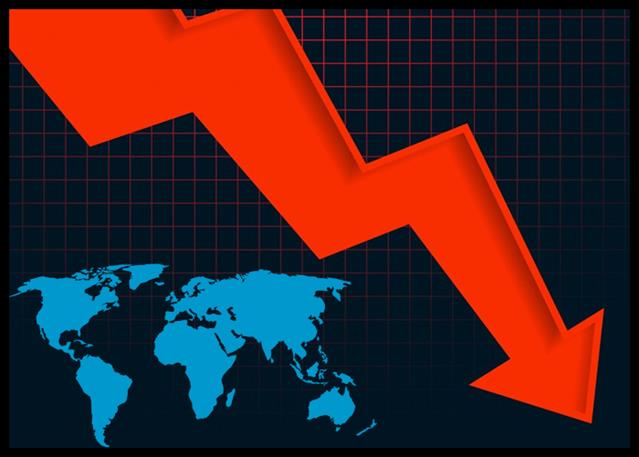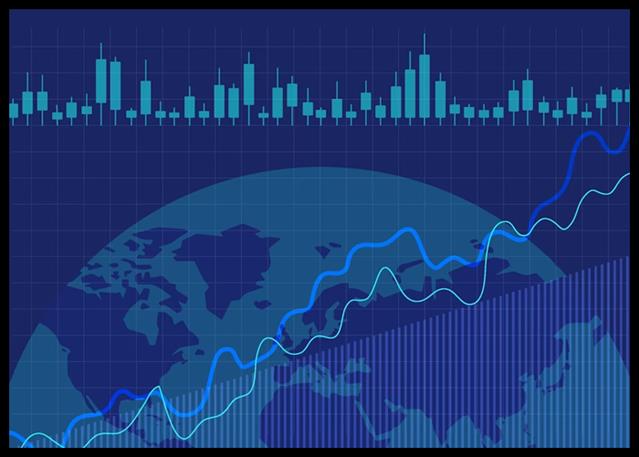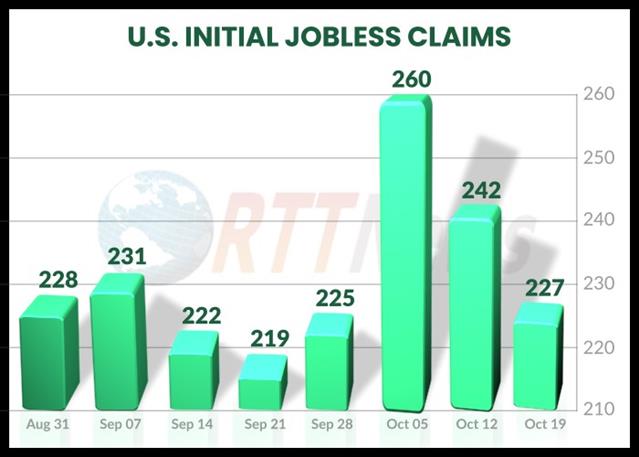Asian Markets Trading Mostly Lower
Asian stock markets are trading mostly lower on Tuesday, following the mixed cues from Wall Street overnight, as traders seemed reluctant to make significant moves ahead of several key events later th...

Asian stock markets are trading mostly lower on Tuesday, following the mixed cues from Wall Street overnight, as traders seemed reluctant to make significant moves ahead of several key events later this week, including the US Fed’s monetary policy meeting and release of U.S. consumer price inflation data. Asian markets closed mixed on Monday.
The Fed is is widely expected to leave interest rates unchanged, but traders are likely to pay closer attention to Fed officials’ latest projections for the economy and rates.
Giving up some of the gains in the previous three sessions, the Australian stock market is sharply lower in post-holiday trading on Tuesday, following the mixed cues from Wall Street overnight. The benchmark S&P/ASX 200 is falling well below the 7,800 level, with weakness across most sectors led by gold miners amid tumbling bullion prices.
The benchmark S&P/ASX 200 Index is losing 124.40 points or 1.58 percent to 7,735.60, after hitting a low of 7,735.10 earlier. The broader All Ordinaries Index is down 125.40 points or 1.55 percent to 7,987.40. Australian stocks closed notably higher on Friday ahead of the holiday on Monday.
Among the major miners, Rio Tinto is losing almost 1 percent and BHP Group is declining more than 1 percent, while Fortescue Metals and Mineral Resources are down almost 2 percent each.
Oil stocks are mostly higher. Woodside Energy and Beach energy are gaining almost 1 percent each, while Santos is edging up 0.1 percent. Origin Energy is losing almost 1 percent.
Among tech stocks, Appen and Zip are gaining almost 1 percent each, while WiseTech Global and Xero are edging down 0.4 percent each. Afterpay owner Block is declining almost 3 percent.
Gold miners are mostly lower. Gold Road Resources, Resolute Mining and Evolution Mining are plunging almost 7 percent each, while Newmont is losing almost 3 percent and Northern Star resources is declining more than 6 percent.
Among the big four banks, Commonwealth Bank and Westpac are losing more than 1 percent each, while National Australia and ANZ Banking Bank are declining almost 1 percent each.
In the currency market, the Aussie dollar is trading at $0.659 on Tuesday.
Adding to the gains in the previous session, the Japanese stock market is modestly higher on Tuesday, with the Nikkei 225 moving well above the 39,100 level, following the mixed cues from Wall Street overnight, with gains in index heavyweights and technology stocks partially offset by weakness in exporters and financial stocks.
The benchmark Nikkei 225 Index closed the morning session at 39,155.16, up 117.00 points or 0.30 percent, after touching a high of 39,336.66 earlier. Japanese shares ended significantly higher on Monday.
Market heavyweight SoftBank Group is edging down 0.4 percent and Uniqlo operator Fast Retailing is flat. Among automakers, Honda is gaining almost 1 percent and Toyota is edging up 0.5 percent.
In the tech space, Advantest is gaining almost 1 percent and Tokyo Electron is adding almost 2 percent, while Screen Holdings is edging down 0.2 percent.
In the banking sector, Mitsubishi UFJ Financial is losing almost 1 percent and Sumitomo Mitsui Financial is edging down 0.5 percent, while Mizuho Financial is gaining almost 1 percent.
The major exporters are mostly lower. Panasonic is losing more than 1 percent, Sony is edging down 0.5 percent and Mitsubishi Electric is declining almost 3 percent, while Canon is edging up 0.1 percent.
Among the other major gainers, Furukawa Electric is gaining almost 4 percent, while Taiyo Yuden, Kawasaki Kisen Kaisha, JGC Holdings and Ebara are adding almost 3 percent each.
Conversely, Eisai is losing more than 3 percent.
In economic news, the M2 money stock in Japan was up 1.9 percent on year in May, the Bank of Japan said on Tuesday – coming in at 1,259.0 trillion yen. That follows the 2.2 percent annual increase in April. The M3 money stock was up 1.3 percent on year in May, standing at 1,611.3 trillion yen – easing from 1.6 percent in the previous month. The L money stock rose 3.3 percent on year at 2,182.8 trillion yen, accelerating from 2.7 percent a month earlier.
In the currency market, the U.S. dollar is trading in the lower 157 yen-range on Tuesday.
Elsewhere in Asia, Hong Kong and China are down 1.9 and 1.1 percent, respectively. New Zealand, Singapore, Malaysia and Indonesia are lower by between 0.1 and 0.5 percent each. South Korea and Taiwan are higher by between 0.3 and 0.5 percent each.
On Wall Street, stocks showed a lack of direction during trading on Monday, extending the lackluster performance seen over the two previous sessions. The major averages bounced back and forth across the unchanged line before eventually closing modestly higher.
Despite the choppy trading, the Nasdaq and the S&P 500 reached new record closing highs. The Nasdaq climbed 59.40 points or 0.4 percent to 17,192.53, the S&P 500 rose 13.80 points or 0.3 percent to 5,360.79 and the Dow edged up 69.05 points or 0.2 percent to 38868.04.
Meanwhile, the major European markets all moved to the downside on the day. While the French CAC 40 Index tumbled by 1.3 percent, the German DAX Index dipped by 0.3 percent and the U.K.’s FTSE 100 Index edged down by 0.2 percent.
Crude oil prices rose sharply on Monday amid optimism about the outlook for energy demand. West Texas Intermediate Crude oil futures for July ended higher by $2.21 or about 2.9 percent at $77.74 a barrel.
- Check out our free forex signals
- Follow the top economic events on FX Leaders economic calendar
- Trade better, discover more Forex Trading Strategies
- Open a FREE Trading Account


